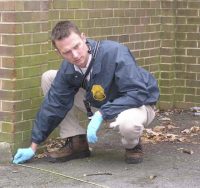Land use and zoning law is the law that determines how a landowner can use their land. Land use and zoning law involves the creation, application and challenges of land use laws. Government bodies create laws that restrict what landowners can do with their real property. The laws may control how landowners can develop property, what types of activities they can do with their property or both. Land use and zoning law is the restriction of a private property owner’s (…)
Obscenity Law
Obscenity law is the law that regulates what images, speech and other expressions individuals can lawfully communicate. Obscenity law concerns itself with banning or suppressing speech that violates standards of good taste and decency. The area of law balances legitimate communication in a free society with the purposes of public censorship. The practice of obscenity law involves prosecuting and defending cases that challenge and interpret obscenity laws. Why do obscenity laws exist? Obscenity laws protect a sense of morality in (…)
Nationality Law
Nationality law is the body of law that governs how a person gains or loses citizenship. Also called citizenship law, nationality law is the law of how a person becomes a citizen of a country or forfeits the citizenship of a country. The area of law also involves the rights and obligations of a citizen. Nationality law is distinct from immigration law Even though immigration law has a lot of overlap with nationality law, they’re not quite the same things. Immigration (…)
Parole Officer
While parole officers and probation officers are often discussed together, these two jobs are not identical. A parole officer works with a person that has been released from a state or a federal prison. A prisoner may be released on parole, but the individual is still not completely free of supervision and the release has strict conditions. Parole can be revoked for almost any type of infraction. The role of a parole officer is to help an individual that has been incarcerated (…)
Department of Homeland Security Careers
According to the US Department of Homeland Security (DHS.gov), as a Homeland Security employee, you will work to help protect the airports, US borders, waterways, and seaports of the United States as well as research and develop new technologies for security, respond to terrorist acts and natural disasters, and work on analyzing intelligence reports that are received. Career Opportunities There are many unique Homeland Security career opportunities available with the DHS. Law Enforcement – these careers include protecting the vice president (…)
Real Estate Law
Real estate law is the area of law that governs buying, using and selling land. It’s the law that governs how people acquire property and what they can do with the property that they own. Real estate law is also called real property law. This law is called real estate because it’s about real property. Real property is land as opposed to personal property which is objects. Fixtures that are permanently on the land like buildings or other large structures are (…)
What is a Criminologist?
Criminologists use social patterns, statistics, and psychology in order to analyze the behaviors of criminals and methods used by criminals in order to help predict and prevent criminal behavior from occurring in the future. Psychological profiling plays an important role in the profession as well. In addition, a criminologist will evaluate how different methods of law enforcement affect crime rates. A criminologist will use their education in federal, state, and local law enforcement agencies or work as college professors. In (…)
DEA Agent
According to the Drug Enforcement Administration (DEA.gov), the DEA is the premier drug enforcement organization in the world and the only single mission federal agency dedicated to drug law enforcement. Using unique operational and intelligence capabilities, the men and women of DEA identify, investigate, disrupt, and dismantle major drug trafficking organizations and those who facilitate them, remove drugs and violent criminals from our neighborhoods, and fight the diversion of licit drugs. For those that are interested in working for the Drug (…)
Estate Law
Estate law is the body of law that concerns a person’s physical and personal property. Estate law involves planning for a person’s finances and property both during their lifetime and after. It’s a body of law that includes taking care of people and property. It can involve both transactional law and litigation. Estate law is all of the laws that impact how a person makes decisions and issues directives about their personal affairs. What is an estate? An estate is (…)
Health Care Law
In the United States health care laws had remained pretty much the same for many years until the Affordable Care Act was passed. The Affordable Care Act offers reform to the current health care laws that are in place and provides individuals with new options for coverage, consumer protection, and offers the citizens of the country the chance to make better and more informed choices about their health. Health Care Law, federal and state administered, deals with issues related to (…)
Maritime Law
Maritime law is the collection of laws and agreements that govern behavior and activities on the seas. The area of law governs how people interact and do business on the waters of the world. Also called admiralty law, maritime law primarily governs activities on international waters. However, there are also laws that apply to the waters in and near each country. Generally, each country applies their own laws to inland waters like lakes and rivers. When most Americans board a (…)
Business Organization Law
Business organization law is the body of law that relates to creating, managing and dissolving businesses. There are several ways to organize a business. Each type of business structure has its own set of rules to follow. Each type of business structure also comes with its own advantages and drawbacks. A business lawyer helps their client choose the right business structure, complete paperwork filing, manage ongoing organizational issues and even helps dissolve the business when it’s appropriate. Helping clients go into business (…)
Technology Law
Technology law is complicated as technology is forever changing. Along with new technological advances new laws are created to help control issues that may arise. The internet has been one of the main advances in technology where laws have had trouble keeping up. There are many areas of technology law including information, internet, and civil liberties including the right to free speech. Technology Law is a relatively new term in our language – so new that it means different things (…)
Immigration Law
Immigration law is the combination of laws, rules and regulations that govern who can enter a country. Immigration and naturalization are two different things. Immigration governs who can come and go from a country. Naturalization controls who can become a citizen. However, they’re interrelated topics. Attorneys who practice immigration law usually have a practice that encompasses both immigration and naturalization. Where Do Immigration Laws Come From? In the United States, immigration laws exist on a national level. The U.S. President has significant control over (…)
Bankruptcy Law
Bankruptcy laws focus on helping individuals solve and repay their debts after they have suffered heavy losses. In the United States there were bankruptcy laws as early as 1800. However, the first voluntary bankruptcy laws were allowed through the Acts of 1841 and in 1867. These laws along with the Bankruptcy Act in 1898 also called the Nelson Act are what our modern debtor/creditor relation system are based on. It is common to hear that a person in a bad (…)
Firearm Law
Firearm law is the combination of laws, regulations and public policy that govern the manufacture, distribution and sale of firearms in the United States. Although the basic rule is that guns are legal in the United States, there are exceptions to the rule, and firearm law remains controversial. Firearm law says who can make or buy a gun and under what circumstances. Firearm laws exist in the United States at both the federal and state levels. The Second Amendment The right to (…)
How to Become a State Trooper
A state trooper is often referred to as the State Police or as Highway Patrol Officers. A State Trooper is typically responsible for enforcing traffic laws on state highways. In addition, these officers often help law enforcement agencies that are located in more rural areas. State Trooper Requirements Each state has varying requirements for their state troopers however the majority of states require an aspiring State Trooper to attend and graduate from the state police academy. For example, according to (…)
Cryptography Law
Cryptography law is the body of law that relates to securing and protecting information from unauthorized access. Cryptography laws protect individuals from having their personal information disseminated without their consent. They also work to protect government secrets as part of a military defense strategy. Another name for cryptography law is encryption law. What Is Cryptography? Cryptography or encryption is the practice of modifying information with a secret encoding key or other method of transforming the information to another form. The (…)
Antitrust Law
Antitrust law is the broad category of federal and state laws that are meant to keep business operating honest and fairly. Antitrust laws regulate the way companies do business. The goal is to level the playing the field in the free market and prevent businesses from having too much power. For the purposes of antitrust law, a trust is a large group of businesses that work together or combine in order to form a monopoly or control the market. Major (…)
How to Become a Crime Scene Investigator
What is a Crime Scene Investigator? The Crime Scene Investigator (CSI) collects and preserves a variety of evidence from an active crime scene. The crime scene investigator is most often a law enforcement professional responsible for the identification, collection, preservation, and cataloging of physical evidence at the crime scene. What Does a Crime Scene Investigator Do? Although many people assume that the crime scene investigator is responsible for the performance of tests of various types of physical evidence, forensic professionals (…)




















